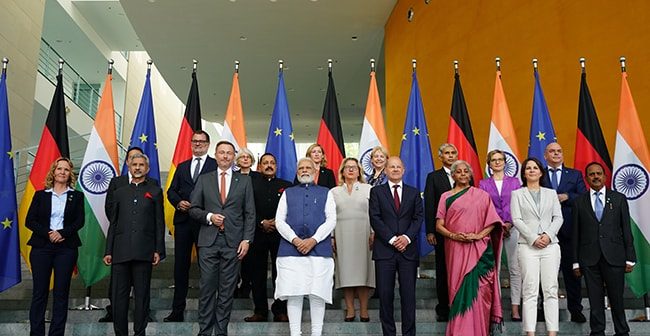India has consistently showcased remarkable progress across various sectors, marking significant milestones that not only contribute to its own development but also position it as a key player on the global stage. The fiscal year 2023-2024 has been particularly notable, witnessing an array of achievements that span economic growth, technological advancements, social initiatives, and international diplomacy. This article delves into the detailed accomplishments of India over the last financial year, highlighting its relentless pursuit of progress and innovation.
Economic Growth and Stability
India’s economy has shown remarkable resilience and growth, with projections placing it among the fastest-growing major economies in the world. Key factors contributing to this growth include robust manufacturing output, significant foreign direct investment (FDI), and an uptick in consumer spending. The government’s emphasis on reforms aimed at simplifying tax structures, improving the ease of doing business, and promoting digital transactions has played a crucial role in bolstering economic confidence and attracting global investors.
Technological Advancements and Digital India
The Digital India initiative has taken significant strides forward, with the country making leaps in technology adoption and digital infrastructure development. The expansion of digital payment systems, broadband connectivity to rural areas, and the launch of several satellites to enhance communication and geographical mapping are noteworthy achievements. Furthermore, India’s commitment to fostering innovation has been evident in its support for startups, resulting in the country becoming a breeding ground for numerous unicorns in sectors ranging from fintech to e-commerce.
Energy and Sustainability
In its quest for sustainable development, India has made substantial investments in renewable energy, aiming to reach ambitious targets in solar and wind energy production. The country has emerged as a global leader in the renewable energy sector, with significant installations of solar parks and wind farms. Additionally, India’s commitment to reducing carbon emissions and embracing cleaner energy sources was underscored by its initiatives to promote electric vehicles (EVs) and develop green urban transportation systems.
Health and Education
The healthcare sector has witnessed transformative changes with the implementation of schemes aimed at making health services more accessible and affordable. Major health initiatives have focused on eradicating communicable diseases, enhancing maternal and child health services, and expanding insurance coverage to underprivileged sections of society. In education, the New Education Policy (NEP) has started to take shape, focusing on overhauling the current system to make it more holistic, flexible, skill-oriented, and aligned with the needs of the 21st century.
Infrastructure Development
India’s infrastructure sector has seen significant advancements, with the completion of key projects in transport, urban development, and connectivity. The expansion of the national highway network, the inauguration of new airports, and the upgrading of railway services have greatly enhanced mobility and economic efficiency. Additionally, smart city projects have been accelerated, focusing on sustainable urban planning, waste management, and digital governance.
Social Welfare and Inclusion
The government has continued its efforts to promote social welfare and financial inclusion, launching several schemes aimed at supporting the marginalized and vulnerable sections of society. Initiatives aimed at providing affordable housing, employment opportunities, and financial assistance to small businesses have contributed to reducing poverty and promoting social equity.
International Relations and Diplomacy
On the international front, India has played a proactive role in shaping global discussions on climate change, terrorism, and trade. Its active participation in international forums, such as the United Nations, G20, and BRICS, has underscored its commitment to addressing global challenges through collaboration and diplomacy. The country has also strengthened its bilateral and multilateral ties, engaging in strategic partnerships that bolster its economic and security interests.
Challenges and the Road Ahead
While the achievements of the fiscal year 2023-2024 are commendable, India faces ongoing challenges, including the need for further reforms in sectors such as agriculture, education, and healthcare. Addressing these challenges will require sustained efforts, innovative solutions, and inclusive policies that ensure the benefits of growth and development are shared by all sections of society.
In conclusion, the fiscal year 2023-2024 has been a year of significant achievements for India, marked by economic resilience, technological innovation, and a commitment to sustainable development. As India continues on its path of progress, the foundation laid in this fiscal year will undoubtedly contribute to its vision of becoming a global leader in the years to come. The journey ahead is filled with opportunities and challenges, but with its dynamic leadership and vibrant populace, India is well-positioned to embrace the future with confidence and optimism.





